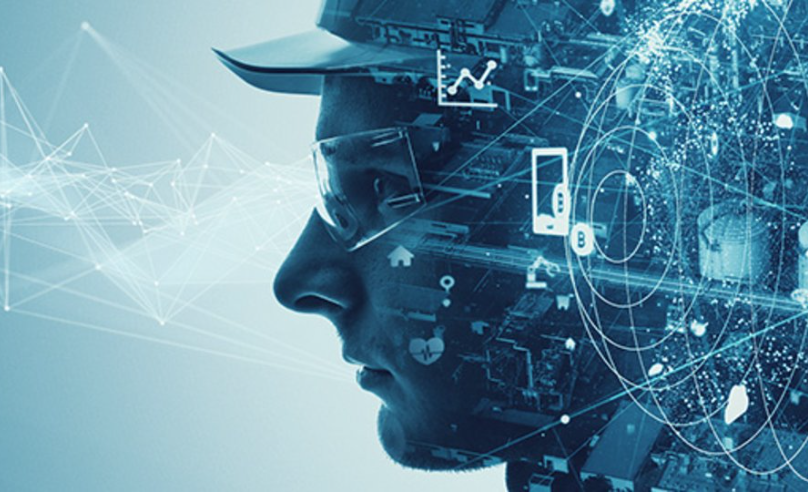“Be Prepared: Navigating the Artificial Intelligence Revolution with Confidence and Optimism”
Introduction
The artificial intelligence revolution is in full swing. We are seeing a rapid proliferation of AI applications, from driverless cars to machine learning algorithms that can diagnose diseases and make predictions in the stock market. But with this revolution comes a dark side, one that raises serious ethical and safety concerns. The potential for misuse of AI technology must be addressed if we are to reap its many benefits. In this article, we will discuss the potential dangers of AI and how we can survive the dark side of the AI revolution. We will explore the risks associated with AI, such as job loss, privacy issues, and the potential for weaponizing AI, as well as potential solutions to mitigate these risks. We will examine the need for ethical and legal frameworks to regulate the use of AI and how to ensure its responsible use. Finally, we will explore how individuals, businesses, and governments can benefit from the advances in AI without succumbing to its dark side.
How to Protect Your Privacy in the Face of Growing AI Surveillance
As artificial intelligence (AI) technology rapidly advances, so too does its capacity to monitor our activities, placing our privacy at risk. While AI can provide significant benefits, its use must be carefully regulated to ensure that our right to privacy is respected. To protect your privacy in the face of growing AI surveillance, there are several steps you can take.
First, be aware of the types of data that AI-driven companies and organizations collect and how they use it. Ask yourself what data you are comfortable sharing and who should have access to it. Make sure you are familiar with the terms of service and privacy policies of any company or organization you interact with, and be sure to read the fine print.
Second, be mindful of the technology you use and how you use it. Consider using a secure browser and encrypting your data. You can also enable two-factor authentication on your devices and accounts to add an extra layer of security.
Third, consider using a virtual private network (VPN) to mask your IP address and your online activities. A VPN will also allow you to access content that may be blocked in your country.
Fourth, be aware of how you use social media and other online platforms. Be careful what you post online and make sure you are aware of the audience that may be viewing it. Don’t share personal information unless absolutely necessary.
Finally, stay informed on the latest developments in AI technology. Keep up to date on new laws and regulations that may impact your privacy. Understand the potential implications of AI-driven services and make sure you have the necessary tools to protect yourself.
By taking these steps, you can help ensure that your privacy is respected in the face of growing AI surveillance. It is also important to remember that you have a right to privacy and that you do not have to accept every technological advancement just because it is available.
Preparing for a Job Market Impacted by Automation
As automation continues to increase in the job market, it is important for job seekers to be prepared to compete in a more automated job landscape. Automation is impacting many industries, from manufacturing to retail, and is replacing human labor with machines. As a result, it is critical for job seekers to develop skills that are not easily automated, such as critical thinking and problem solving, as well as skills that are transferable across industries.
In addition to developing skills that are not easily automated, job seekers should look for opportunities that leverage the strengths of both humans and machines. For example, jobs that involve the combination of human expertise and machine-driven analytics can be highly sought after. Job seekers should also be aware of emerging technologies and trends in automation, such as artificial intelligence (AI), so they can stay ahead of the curve and position themselves in job markets that are ripe for automation.
Finally, job seekers should research the industries and companies they are interested in for signs of automation. By understanding the automation trends in the industry, job seekers can gain an advantage by focusing on skills that are in high demand, such as data analysis and programming. Additionally, they can tailor their resumes and cover letters to emphasize their experience in areas of automation, such as AI and machine learning.
By leveraging the strengths of both humans and machines, job seekers can position themselves to stay competitive in a job market that is increasingly driven by automation. While automation will continue to impact the job market, job seekers who are prepared and have the right skills can stay ahead of the curve and be more successful in their job search.
Navigating the Legal and Regulatory Challenges of AI
As Artificial Intelligence (AI) continues to advance, so too do the legal and regulatory challenges associated with its use. AI presents new opportunities and risks that must be adequately addressed in order to ensure that its use is both safe and beneficial. This article will discuss the current legal and regulatory landscape surrounding AI, as well as potential solutions for navigating these challenges.
The legal and regulatory landscape surrounding AI is complex, with many different countries and regions having their own unique set of laws and regulations. In the European Union, for example, the General Data Protection Regulation (GDPR) sets out specific rules regarding the protection of personal data. Other countries, such as the United States, have yet to develop a comprehensive set of regulations governing AI. This lack of a unified legal framework has created a situation where organizations must navigate a patchwork of different laws and regulations.
In addition to the legal issues surrounding AI, there are also ethical considerations that must be taken into account. For instance, questions of privacy, transparency, and accountability must be addressed when developing and deploying AI systems. Organizations must consider the potential impact of their AI systems on society, and take steps to ensure that they are being operated in a responsible manner.
Given the complexity of the legal and regulatory landscape surrounding AI, organizations must take steps to ensure that they are in compliance with all applicable laws and regulations. This can involve working with legal experts to ensure that their AI systems are compliant, as well as establishing internal policies and procedures to ensure that their AI systems are operated in a responsible manner. Additionally, organizations should consider joining industry groups or networks to gain access to best practices and resources for navigating the legal and regulatory challenges of AI.
Ultimately, navigating the legal and regulatory challenges of AI will require a collaborative effort between governments, organizations, and individuals. By taking a proactive approach, organizations can ensure that their AI systems are operated in a safe and responsible manner, while also taking advantage of the many benefits that AI can offer.
Understanding the Ethical Implications of AI Development
The development of artificial intelligence (AI) has raised complex ethical considerations for both developers and users. AI technology can be used to automate decisions and make predictions based on data, which raises potential ethical issues concerning accuracy, privacy, transparency, and responsibility.
Accuracy is a key concern when it comes to AI development. If an AI system makes an incorrect decision or prediction, it can lead to inaccurate or unfair outcomes. Developers must ensure that the data used to train their AI systems is accurate and unbiased, and that the AI algorithms used are reliable and trustworthy.
Privacy is another important ethical concern. AI systems often rely on personal data to make decisions, which can create privacy implications. Developers must ensure that any personal data collected is securely stored and used responsibly. They must also ensure that individuals affected by AI systems are informed of their rights and how their data is being used.
Transparency is equally important. AI systems are often “black boxes”, with developers not knowing how the system is making decisions or predictions. This can create ethical issues, as users may not be able to understand or challenge the decisions made by the AI system. Developers must ensure that their AI systems are transparent and that users are aware of how the system is making decisions.
Finally, responsibility is a major ethical consideration. AI systems are often seen as “autonomous”, with developers believing that the system is responsible for its own decisions. However, developers must ensure that they remain responsible and accountable for their AI systems, and that they are aware of the potential impacts of their AI systems on individuals and society.
AI development raises complex ethical considerations, and it is essential that developers are aware of the implications of their work. By understanding the accuracy, privacy, transparency, and responsibility implications of AI development, developers can ensure that their work is ethical and responsible.
Developing Strategies to Mitigate the Risks of AI-Driven Decision Making
The development and implementation of Artificial Intelligence (AI) systems is rapidly increasing in many industries and organizations. AI has become a powerful tool for automating decisions and processes, but it can also pose significant risk. To mitigate the risks associated with AI-driven decision making, organizations must develop and implement strategies that emphasize accountability, transparency, and fairness.
First, organizations must ensure that decisions made by AI systems are accountable and that stakeholders are able to understand the decision-making process. AI systems should be designed to provide transparency around their decisions so that stakeholders can understand why a decision was made, how it was reached, and how it may be changed in the future. Organizations should also strive to create systems that are explainable, meaning that they can clearly explain the logic and reasoning behind decisions made by the AI.
Second, organizations must make sure that AI systems are fair and unbiased. To do this, organizations should strive to create systems that are free from bias, such as gender, ethnic, or racial bias. They should also ensure that the data used to train the AI system is representative of the population it serves, and that it is free from any bias or preconceived notions. Additionally, organizations should strive to create systems that are equitable, meaning that they treat all individuals and groups fairly and equally.
Finally, organizations should strive to create systems that are designed to protect user privacy. AI systems should be designed to protect user data and ensure that it is not collected or used without the user’s consent. Organizations should also create systems that are secure, meaning that they have measures in place to protect user data from unauthorized access or misuse.
By implementing these strategies, organizations can reduce the risks associated with AI-driven decision making and ensure that their AI systems are accountable, transparent, and equitable. Organizations should also create a culture of ethical AI development and use that emphasizes the importance of fairness and privacy. With these strategies in place, organizations can develop and implement AI systems that are beneficial and safe for their users.
Conclusion
The Artificial Intelligence revolution has been in full swing for many years, and it has the potential to profoundly transform our lives and society. However, it also presents challenges that must be faced and managed if we are to successfully navigate the transition. We must be aware of the potential risks and be prepared to address them proactively, while also taking advantage of the opportunities that AI provides. We must also ensure that our actions and decisions are ethical and responsible. By doing so, we can ensure that we are ready to survive and thrive in the AI revolution.


